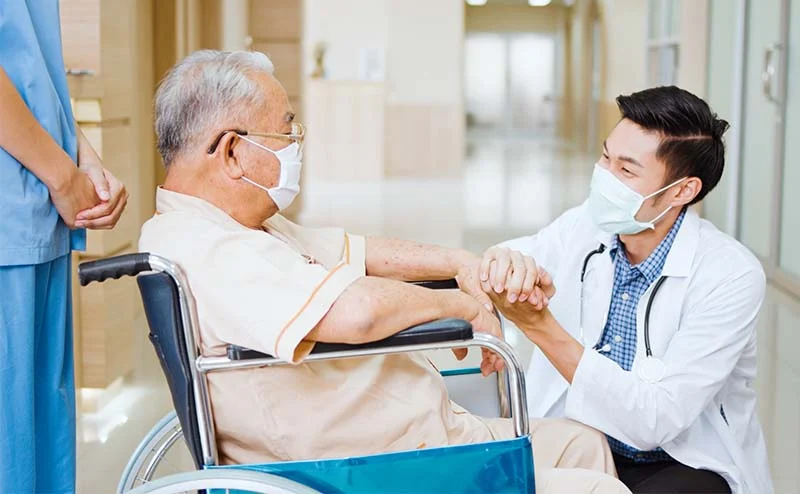Caring for elderly loved ones requires planning and readiness, especially during emergencies. Situations like sudden illness, falls, or accidents demand quick action to ensure their safety and well-being. This guide will help you understand why preparation is essential, what steps you need to take, and who can assist in providing effective emergency elderly care.
Why Preparing for Emergency Elderly Care is Crucial
Emergencies can happen unexpectedly, and seniors are particularly vulnerable due to age-related health conditions or limited mobility. Being unprepared can lead to delays in care, increased stress, and potentially life-threatening outcomes. Emergency elderly care ensures that seniors receive timely assistance while reducing the burden on caregivers and families.
Preparation not only safeguards your loved ones but also provides peace of mind knowing you’re equipped to handle crises. Services like Daily Check In offer tools and resources to help families stay connected and prepared for any situation.
What is Emergency Elderly Care?
Emergency elderly care encompasses immediate and effective responses to urgent situations affecting seniors. This can include:
Medical Emergencies: Heart attacks, strokes, or sudden health complications.
Accidents and Falls: Quick intervention to address injuries and prevent further harm.
Natural Disasters: Ensuring seniors’ safety during events like storms, floods, or heatwaves.
Mental Health Crises: Addressing confusion, anxiety, or dementia-related behaviors.
Effective emergency elderly care involves planning, having the right resources, and using services like emergency alert systems or check in services to monitor and support seniors.
Steps to Prepare for Emergency Elderly Care Situations
Create a Comprehensive Emergency Plan
Start by drafting a detailed emergency plan tailored to the needs of the elderly individual. Include the following:
Emergency Contacts: List key phone numbers, including family, neighbors, doctors, and emergency services.
Medical Information: Document allergies, medications, medical conditions, and healthcare providers.
Evacuation Plan: Map out evacuation routes and designate safe locations during disasters.
Instructions for Caregivers: Provide clear guidelines on handling specific health issues or emergency scenarios.
Utilize Check In Services
Regular monitoring is essential to ensure elderly individuals are safe and well. Services like Daily Check In offer automated or manual check-in options to verify their status. These services can:
Alert caregivers if a senior misses a check-in.
Provide reminders for medication or appointments.
Offer peace of mind with daily updates on their well-being.
Assemble an Emergency Kit
Prepare a readily accessible emergency kit containing essential items such as:
First-aid supplies
Medications with a current list of prescriptions
Copies of medical records
Flashlights and batteries
Non-perishable food and water
Personal hygiene items
Contact information and identification documents
Set Up Emergency Alert Systems
Equip seniors with devices like personal emergency response systems (PERS). These tools allow them to call for help at the press of a button. Many modern systems include features like fall detection and GPS tracking, ensuring rapid assistance when needed.
Stay Informed and Educated
Learn about common health conditions affecting seniors and how to respond during emergencies. Enroll in first aid and CPR courses to gain valuable skills. Regularly review and update your knowledge to stay prepared.
Build a Support Network
Involve family members, friends, and neighbors in the care plan. Designate roles and responsibilities to ensure someone is always available to help. Establish communication channels to coordinate efforts during emergencies.
Schedule Regular Check-Ups
Preventive care reduces the risk of emergencies. Ensure seniors attend regular medical check-ups to monitor their health and address issues early. Use services like Daily Check In to track appointments and manage care schedules.
Who is Involved in Emergency Elderly Care?
Emergency elderly care often requires collaboration between various individuals and organizations. Key participants include:
Family Members: Primary caregivers who provide emotional support and immediate assistance.
Healthcare Professionals: Doctors, nurses, and therapists who offer medical expertise.
Emergency Services: First responders like paramedics, firefighters, and police.
Community Resources: Local organizations and shelters providing aid during crises.
Technology Providers: Companies offering check in services alert systems, and monitoring devices.
Benefits of Proactive Emergency Elderly Care
Enhanced Safety: Minimizes risks and ensures rapid response during crises.
Reduced Stress: Provides clarity and confidence for caregivers and seniors.
Improved Health Outcomes: Timely care reduces complications and promotes recovery.
Peace of Mind: Knowing plans and systems are in place alleviates anxiety.
Increased Independence: Seniors can maintain autonomy while having access to support when needed.
Conclusion
Preparing for emergency elderly care situations is a vital responsibility for caregivers and families. By creating a detailed plan, utilizing services like Daily Check In and building a strong support network, you can ensure your loved ones are safe and well-cared for during any crisis. Proactive preparation not only saves time and stress but also enhances the overall quality of life for seniors and their families.
